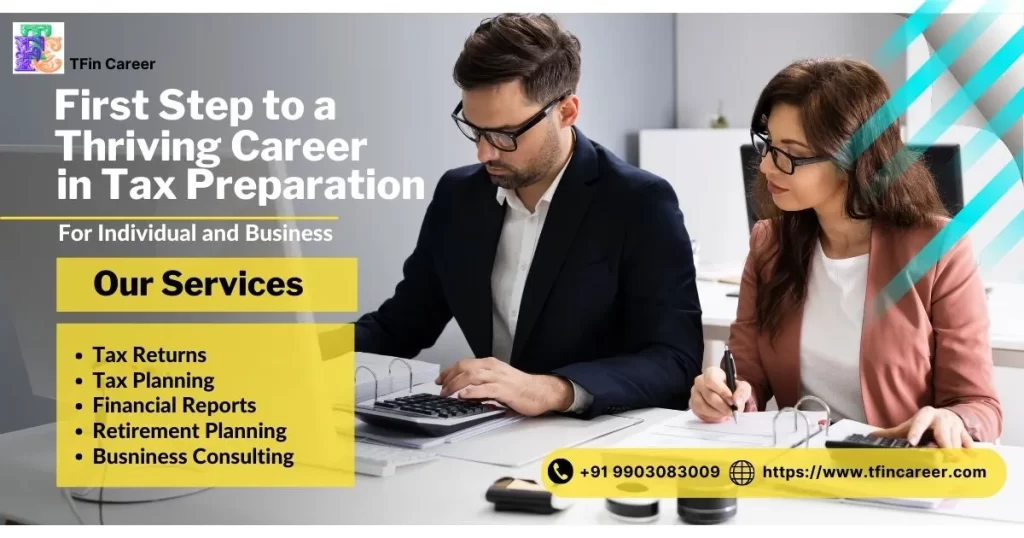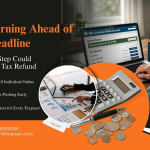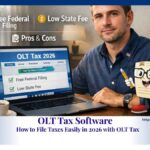Career in Tax Preparer: Becoming a tax preparer can be an exciting and rewarding career choice, especially if you enjoy working with numbers and helping others navigate the often confusing world of taxes. Whether you want to start your own business or work for a more prominent firm, there are several essential steps you need to take to get started in this field. This guide will guide you through the process, answer common questions, and provide helpful tips for becoming a tax preparer.
What Does a Tax Preparer Do?

A charge preparer makes a difference because people and businesses record their charges precisely and on time. Their work is accumulating money-related data from clients, filling out the essential assessment forms, and ensuring that the returns are recorded accurately with the IRS (Internal Revenue Service). Moreover, assess preparers may be prompted to evaluate findings, credits, and ways to minimize risk. The objective is to guarantee citizens completely comply with assessment laws while making a difference in their pay as slight as legitimately conceivable.
Tip: If you enjoy problem-solving and customer service, tax preparation could be an ideal career. It requires attention to detail and the ability to explain complex tax concepts in a way that clients can understand.
Hi there! I am Sudip Sengupta, the face behind “Tfin Career”. Tfin Career is a sole proprietorship finance and consulting firm that makes complex tax and financial concepts easy to understand for everyone. With more than 21 years of experience in the field, I have noticed that people cannot make the right decisions in this field. So, I decided to create “Tfin Career” to help individuals and businesses alike. Here I urge those who are confused to make better choices. Also, it is good news for my dear clients and every visitor that I/we are going to start a training module for those who want to choose a career path in Finance and Taxation. Just follow my website.
Thank you for reading this post, don't forget to subscribe!






